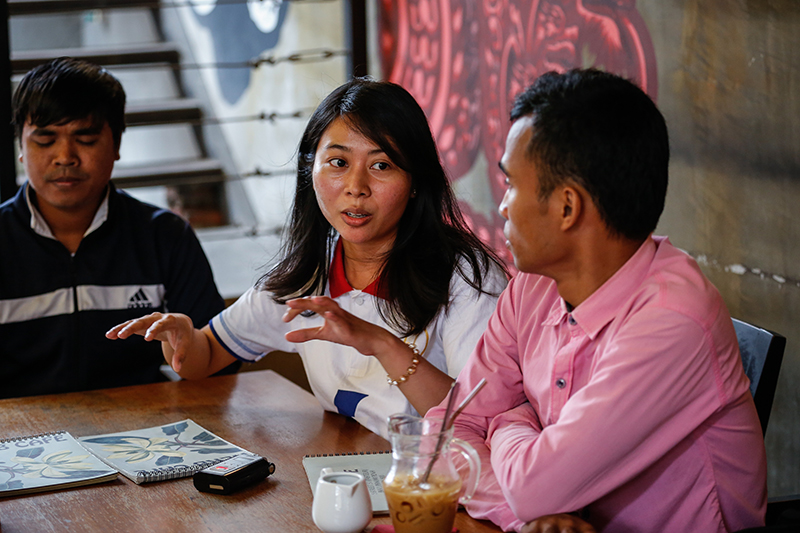For evidence of how dangerous it is to be an outspoken political analyst in Cambodia, Hang Vitou doesn’t need to look very far. His mentor, Kem Ley, was shot dead at a Phnom Penh gas station earlier this month over what most believe was his forthright criticism of the government.
“He used to talk. He said, ‘When I speak the truth, I never thought I would stay alive,” said Mr. Vitou, 26.
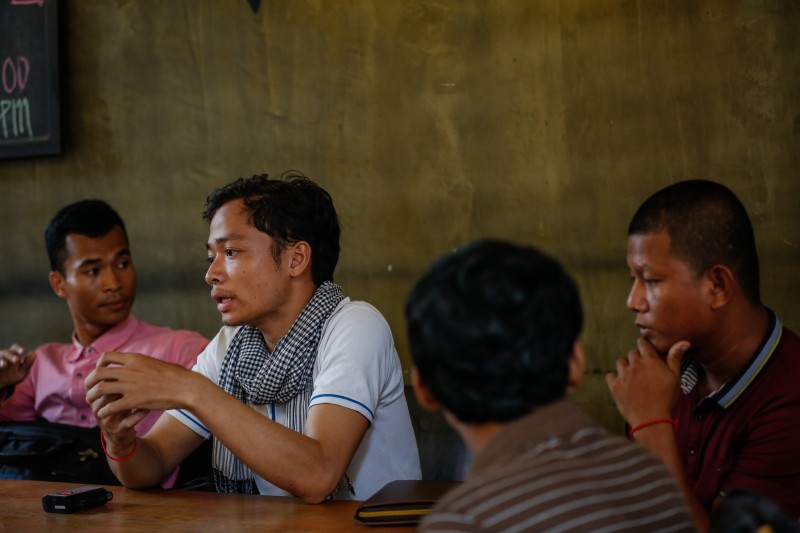
But although he sees the job as a risky one, Mr. Vitou, one of Kem Ley’s most devoted followers, is now an aspiring political analyst himself and the founder of a club called the Young Analysts Group that aims to encourage and train a new generation of commentators.
Before he was gunned down, Kem Ley’s voice was often heard over the airwaves, discussing political and social issues of the day, and his views were regularly published in the print media, offering balanced criticism of both sides of the political spectrum. But few knew he was also training a group of young followers to develop their critical thinking, with a view of bolstering the fledgling field of independent political analysts.
Mr. Vitou said he first met Kem Ley at Bangkok’s Chulalongkorn University in 2013 while they were both studying and doing research there.
Following an afternoon discussing Cambodian politics, the pair vowed to keep in touch and arranged to meet once they were both back in their homeland. When they met again in Phnom Penh last year, they decided to launch the Young Analysts Group.
Meeting every Sunday at various locations across the capital, the group—which has about 50 members, although Mr. Vitou concedes that only around 15 are fully active—would discuss ways of pushing for democratic change in Cambodia, while Kem Ley would help them develop their analytical skills.
“The mechanisms of how to research and analyze is very complicated,” Mr. Vitou said.
“For the people who just express the opinion, we cannot call it analysis. Analysis needs some mechanism and needs some progress. It’s not just ‘see and say,’” he said.
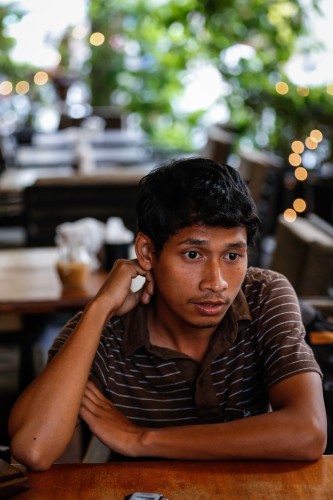
“Here, he taught us the process: how to collect data, how to write data, how to note, how to interview and then how to combine all documents as one, and then we can report, and sometimes we can advertise [our views] on Facebook or give this report to journalists.”
Members of the Young Analysts Group would also regularly accompany Kem Ley to the provinces to survey opinions on a wide range of topics, including corruption and border disputes with Vietnam.
Neng Pov, 22, an IT student and active member of the group, said that although Kem Ley frequently remonstrated against government abuses, he always emphasized the importance of political neutrality.
“Dr. Kem Ley would not teach us a specific subject but taught us to how analyze data completely, and he said that we had to remain independent and be careful with our wording,” Mr. Pov said.
“Being an analyst is about looking at the negative and positive aspects to find a solution. If we favor either side, we cannot be called independent analysts, and we will not be able to find solutions,” he said.
Despite efforts to emulate his mentor, Mr. Vitou’s attempts to maintain neutrality seemed to stray into murkier waters when discussing his group’s planned grassroots activities in the run-up to the 2018 national election.
“First, we want to find the truth about the border issue because now Cambodia and Vietnam have a conflict over the border territory,” he said. “Gradually, Cambodia is being invaded by Vietnam so we just want to make sure that we have all the evidence.”
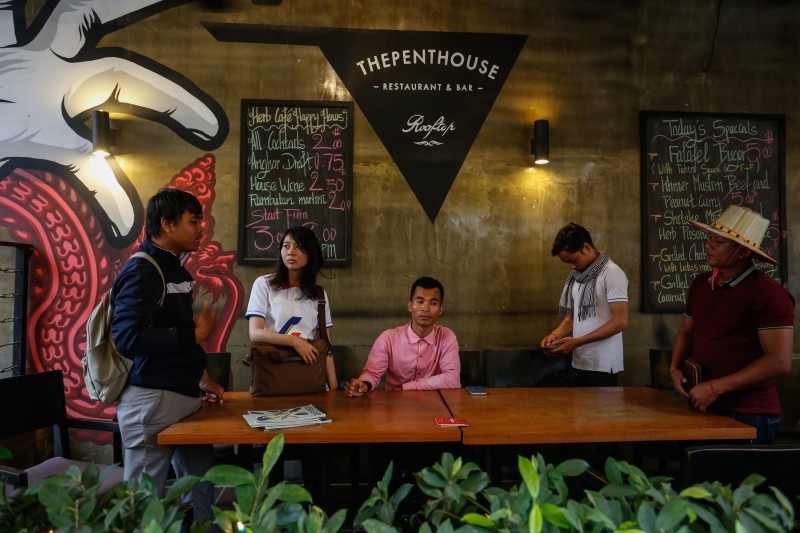
“Then we can present it to the government, but the government never accepts our research—they say it’s crazy,” he added.
Mr. Vitou refuted the suggestion that his work could be seen as opposition activism, claiming that Vietnamese encroachment and poor CPP governance were simply in need of scrutiny.
“We work for our independence from Vietnam as it always encroaches” on Cambodian territory, he said. “CPP is a ruling party, and they make a lot of mistakes…. Why not criticize?”
Kem Ley was aware of the dangers of speaking out against the government, Mr. Vitou said.
“He knew very clearly he would die someday,” Mr. Vitou said. “We need to explain why [the government] doesn’t want us to explain. They don’t want anyone to explain anything about democracy.”
Ou Virak, a prominent political analyst and the founder of the independent Future Forum think tank, said political analysis was a relatively new phenomenon in Cambodia.
“This is something new. The real organic kind of emerging civil society is something only starting to take shape in the past three or four years, particularly after the election of 2013.”
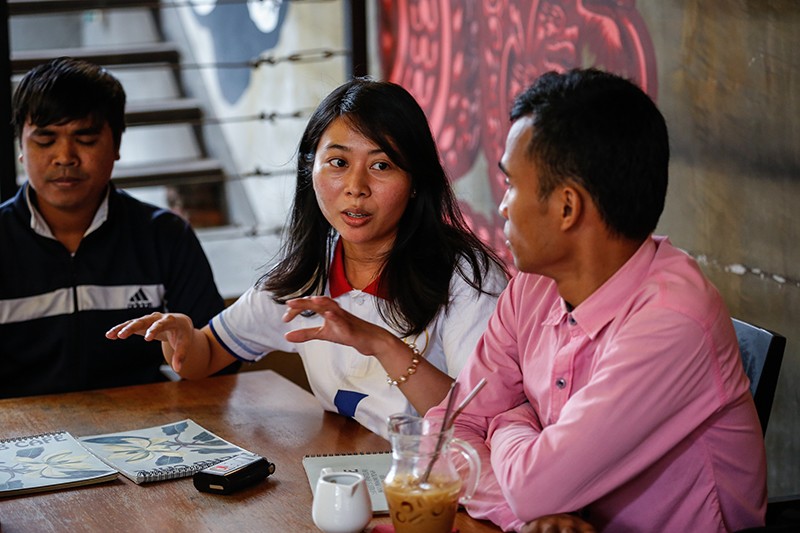
“There’s a lot of political activism but not a lot of political analysts. But I think in the past three years, I think that’s changed and more people are starting to sit back and explain and take a measured view of political development,” he said.
Mr. Virak said he was hopeful about the potential for a new generation of analysts but pointed out that the term was somewhat broad.
“I have no idea why I’m called a political analyst, either,” he added with a laugh.
Pheng Sreyleak, 24, one of three women in the Young Analysts Group, said members hoped to air their views and findings on the radio—like their mentor.
“He made Cambodian people learn through listening to the radio,” Ms. Sreyleak said.
“We will keep on doing this…. Some will do politics, others will do environment and economics,” she said, adding that members had already appeared on the likes of Beehive Radio and the Cambodian Center for Human Rights’ radio program.
Despite Kem Ley’s death, all of the young analysts interviewed over the past week said they were determined to continue commenting publicly on pertinent issues.
Meng Heng, 26, said Cambodian history was full of examples of people being killed simply because they were educated. He said he hoped that his generation, which he called “the young generation with knowledge,” would be the first to buck this trend.
“We are speechless, but we are going to continue,” he said. “We cannot back down. From the beginning, we learned from Dr. Kem Ley not to be afraid.”

